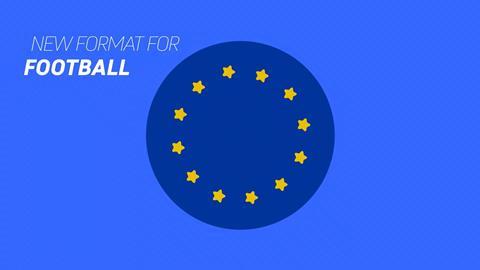Company behind original Super League proposal returns after European Court of Justice ruling

A22, the company behind the short-lived 2021 attempt to create a European Super League, has again made a similar proposal following a European Court of Justice ruling in its favour.
The court found against UEFA and FIFA in a case that alleged the pair were breaking competition law by threatening breakaway clubs. However, it also noted that a breakaway league would not necessarily be approved and no potential clubs or prize money have been revealed.
Shortly after the ruling became public, A22 has made another proposal for men’s and women’s European Super Leagues - that would be broadcast through a free-to-air D2C digital streaming platform, called Unify. The platform would include, “highlights, match insights and analysis, club-specific content, and many other interactive options,” in addition to live matches.
Viewers would be able to tune in for free through an ad-supported tier, with subscription fees for those who want fewer adverts and to use features such as, “favourite camera angles, live match data, and other interactive options.” A22 does not rule out partnerships with broadcasters, stating, “Distribution partnerships with broadcasters, streaming services, clubs and content providers will also be an important component of the Unify experience to ensure ease of access for fans.”
A short video on the platform has been released, which you can watch below.
A similarly controversial sporting competition, LIV Golf, launched with a D2C streaming platform while it attempted to win distribution deals with broadcasters - reportedly even considering giving them away for free.
As for the competitions themselves, the men’s Super League would include 64 teams in three tiers, Star and Gold with 16 teams each, and Blue with 32 sides. All sides would play in groups of eight, guaranteeing 14 games-a-year ahead of a knockout stage of eight teams at the end of the season to determine the champion. There would be annual promotion and relegation across the tiers, with entry to the Blue tier determined by domestic league success. It would aim to take the same matchdays as those currently used by the Champions League, Europa League, and Europa Conference League.
Meanwhile, the women’s competition would be similar, but with just 32 teams in two tiers, Star and Gold. They would also play in groups of eight, with 14 guaranteed matches, and have eight-team knockout stages. Promotion and relegation would be the same as the men’s competition as well.
Speaking after the European Court of Justice ruling, A22 CEO Bernd Reichart said: “The new Super League format would lead to exciting matches throughout the entire year, not just part of the year, a league system with just 14 matches means that absolutely every match counts, clubs that almost never play each other will now compete regularly on the European stage generating even greater rivalry, at the same time there is mobility between the leagues, with promotion and relegation, and with an ongoing strong connection to domestic leagues, and finally, there would be an incredible season-end knock out stage.”
UEFA released a statement after the rulling: “This ruling does not signify an endorsement or validation of the so-called ‘super league’; it rather underscores a pre-existing shortfall within UEFA’s pre-authorisation framework, a technical aspect that has already been acknowledged and addressed in June 2022. UEFA is confident in the robustness of its new rules, and specifically that they comply with all relevant European laws and regulations.
“UEFA remains resolute in its commitment to uphold the European football pyramid, ensuring that it continues to serve the broader interests of society. We will continue to shape the European sports model collectively with national associations, leagues, clubs, fans, players, coaches, EU institutions, governments and partners alike.
“We trust that the solidarity-based European football pyramid that the fans and all stakeholders have declared as their irreplaceable model will be safeguarded against the threat of breakaways by European and national laws.”





No comments yet